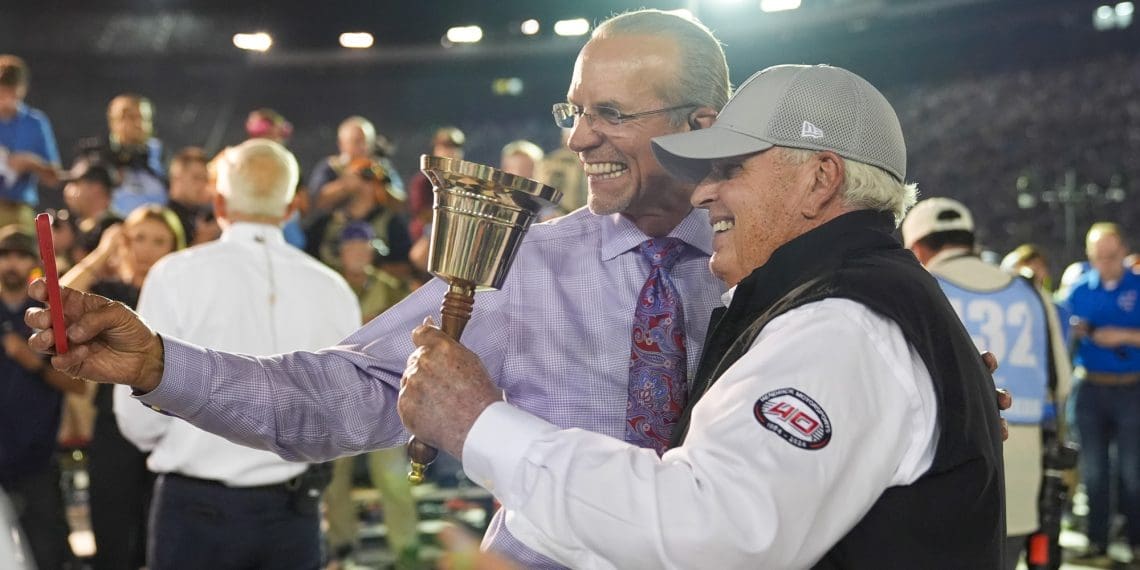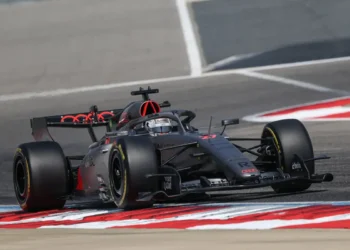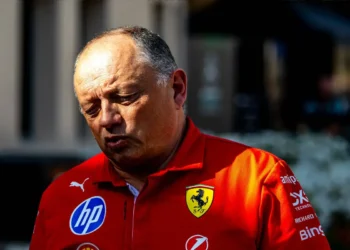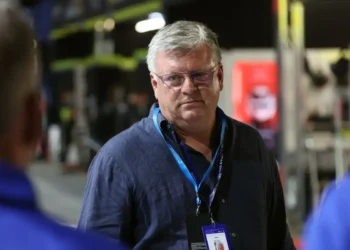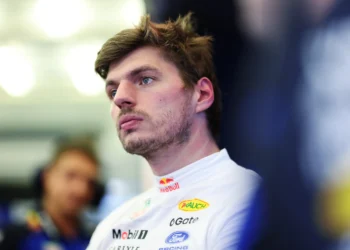The NASCAR Cup Series race at Talladega Superspeedway was expected to deliver its signature chaos, but even seasoned observers like former NASCAR driver Kyle Petty were shocked by the magnitude of the 28-car wreck that occurred late in the race. In his fiery reaction, Petty didn’t hold back, criticizing the drivers for poor decision-making and their tendency to shift the blame onto others.
Petty Calls Out NASCAR’s Top Drivers
The wreck unfolded when an over-aggressive push caused a collision that rippled through the field, collecting almost all the cars involved in a tight four-wide battle in the midfield. Despite the chaos, some drivers pointed fingers at the lapped car of Todd Gilliland, accusing him of causing the incident. But Petty was having none of it.
“We praise these guys as the greatest race car drivers in the world. They run three-wide, they run four-wide, and when we have the big wreck, they blame it on Todd Gilliland because he’s a lap car running on the bottom. They can’t run two-wide and pass a lap car? When you’re four-wide, you’re the greatest driver in the world,” Petty exclaimed.
Drivers’ Mistakes and Passing Failures
Petty insisted that the blame lay not with the lapped car but with the drivers’ inability to maneuver effectively. He asserted that if these “greatest drivers in the world” can’t pass a lapped car in a wide, open track like Talladega, then they are failing at their job. “When you’re two-wide racing your butt off, I guess you don’t know how to drive. I don’t know what happened there. Don’t blame it on a lap car at Talladega. There’s plenty of room. I don’t know what that’s all about.”
He went on to criticize the lack of proper passing strategy displayed during the race, arguing that the drivers had more than enough space to make efficient moves but failed to do so. According to Petty, the drivers’ inability to make the right calls was a key factor in the wreck.
Petty’s Critique on Fuel Saving at Talladega
Petty also took aim at the fuel-saving tactics that have become a central feature of superspeedway racing in the Next-Gen era. He was particularly vocal about how fuel conservation strategies have overshadowed the aggressive racing Talladega is known for. “Talladega should not be a fuel-mileage race,” Petty declared. “From the time they said ‘Gentlemen, start your engines,’ there’s guys that sat on pit road, ‘I’m not cranking my car. I’m not using gas right now.’ And they didn’t. They were saving fuel before the race even started.”
Petty believes this focus on fuel efficiency is a disservice to the excitement that Talladega is supposed to deliver. He pointed out that similar strategies influenced the outcome of the Spring race at Talladega and played a significant role in Sunday’s race as well.
While Petty placed blame on the drivers for some of the on-track decisions, he also highlighted the limitations of the Next-Gen car as a major contributing factor. According to Petty, the current cars force drivers into a box where fuel-saving becomes a priority and restricts the aggressive moves Talladega fans expect. “It’s the Next-Gen car that’s to blame for the incident and not the drivers, as they don’t have a better alternative,” he explained.
Kyle Petty’s harsh words are a reminder that even the most experienced racers in the world are not immune to mistakes and misjudgments. His criticisms call into question whether the current approach to superspeedway racing—focusing on fuel strategy and overly aggressive pushing—is sustainable or desirable for the sport’s future.
As the debate rages on about how to manage races at Talladega and other superspeedways, Petty’s perspective adds to the growing conversation about NASCAR’s Next-Gen era and the balance between innovation and maintaining the sport’s thrilling nature.

